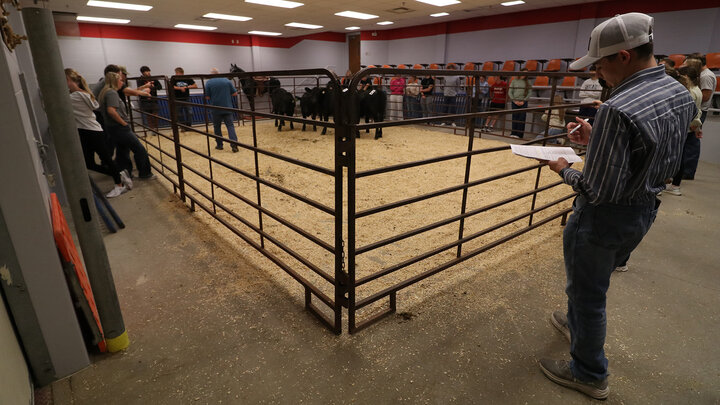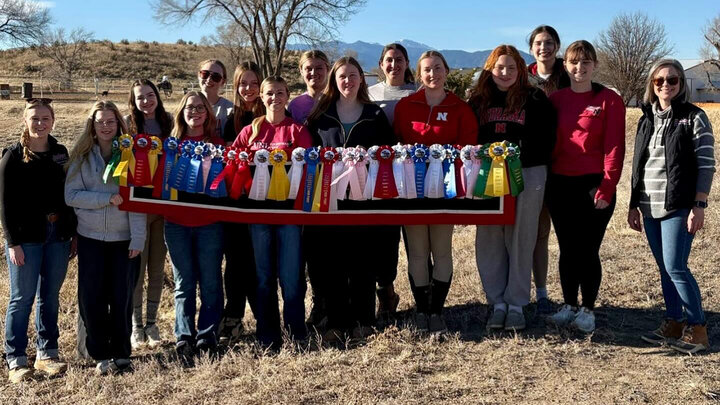Dr. Rick Stowell, a professor & extension animal environment specialist with a split appointment between the Department of Biological Systems Engineering and the Department of Animal Science, has been chosen to serve on a USDA Task Force on Agricultural Air Quality Research.
The 27 new members will examine the intersection of agricultural production and air quality, and advises the secretary on scientifically sound, cost-effective, federally supported agricultural solutions that can help improve air quality. The Task Force members are from diverse backgrounds, including agricultural producers, agricultural industry representatives, researchers, scientists and members of health and regulatory organizations, who have an interest and expertise with agriculture air quality issues. The newly selected members will serve a term of up to two years.
Members of the 2024-2026 task force are:
- Kevin Abernathy – Tennessee
- Robert Burns – Tennessee
- Brian Cochrane – Washington
- Manuel Cunha – California
- Iris Feng – North Dakota
- Daniel Fields – Michigan
- Kelley Green – Texas
- Thomas Haren – Colorado
- Maia Hutt – North Carolina
- Jimmy Kinder – Oklahoma
- April Leytem – Idaho
- Hong Li – Delaware
- Sheryl Magzamen – Colorado
- Chris McGlothlin – California
- Frank Mitloehner – California
- Lara Moody – Maryland
- Paul Ollerton – Arizona
- Sally Shaver – North Carolina
- Bryan Shaw – Texas
- Samir Sheikh – California
- Philip Silva – Kentucky
- Rick Stowell – Nebraska
- Marguerite Tan – Arizona
- Rod Venterea – Minnesota
- Lingjuan Wang-Li – North Carolina
- D’Ann Williams – Maryland
- Joseph Wolfgang - Pennsylvania
“USDA’s Task Force on Agricultural Air Quality Research continues to benefit from the expert guidance of local farmers, ranchers, academia and other environmental professionals to advance air quality and climate-smart agriculture,” said USDA Natural Resources Conservation Service (NRCS) Chief Terry Cosby. “Minimizing agriculture’s impact on air quality is a collective interest of Task Force members, which enables us to harness the full capacity and resources brought to the table to confront air pollution and produce tangible solutions for emerging and existing air quality challenges.”
The Task Force on Agricultural Air Quality Research continues to promote USDA research efforts and identifies cost-effective ways the agriculture industry can improve air quality. Focus areas of the Task Force may include:
- Providing recommendations for needed research related to agricultural air quality issues.
- Ensuring that implementation of USDA practices, programs and research for air quality and climate change promote environmental justice goals and exploring opportunities for improving the environment for all.
- Addressing reactive nitrogen emissions, including ammonia from agricultural sources, especially in relation to nitrogen deposition, greenhouse gas impacts and ammonia’s role as a precursor to fine particulate matter formation.
- Discussing agricultural greenhouse gas and carbon sequestration topics, including climate-smart agriculture and forestry options and sustainable solutions.
- Providing guidance and recommendations to the secretary regarding the impact on agriculture from U.S. Environmental Protection Agency rules and research, including the National Ambient Air Quality Standards and emissions estimating methodologies for livestock and poultry operations.
- Discussing state and local air quality regulations related to agriculture and the potential impact on agricultural operations in those areas.
Created by the 1996 Farm Bill, the Task Force on Agricultural Air Quality Research works to address agricultural air quality issues. It also helps better coordinate activities and resources among USDA agencies and other federal partners, including the Environmental Protection Agency.
Chaired by USDA’s Natural Resources Conservation Service Chief, this is the 12th Task Force since its launch in 1997.




